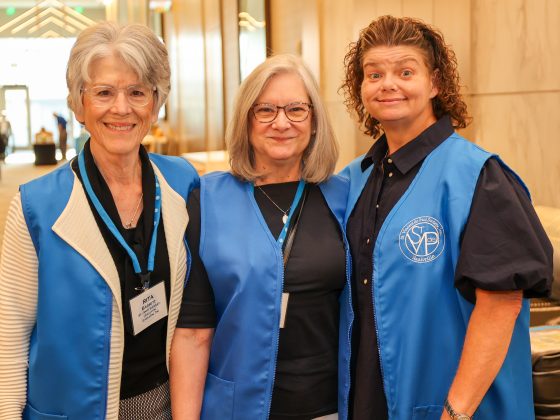The first of the four permanent principles of our Catholic social doctrine is the dignity of the human person. [CSDC, 160] What does that mean for us as Christians and as Vincentians? The word dignity comes from the Latin dignus, meaning “worthy.” In the normal interactions of life, we may not naturally apply this idea to everybody we know. We tend to apply terms like “dignitaries” or “worthies” mainly to a special few who have proved themselves in some way.
Yet our belief in the dignity of the human person – of every human person – derives from our belief that we are made in God’s image, each of us and all of us: “God created mankind in his image; in the image of God he created them; male and female he created them.” He didn’t create only one of us, or only some of us, in His image. We all are worthy.
We can remember this more easily when we think of our family members and close friends. They needn’t prove their merit in any way for us to know, deep in our hearts, that they are worthy. We believe this not because of anything they have done to earn our esteem, but simply because we love them.
Vincentians are called to see the face of Christ in our neighbors; we are called to serve them for love alone. Our love is the reason we never adopt the attitude that the assistance we offer is our possession, or that the neighbor has “to prove that they deserve it.” [Manual, 23] We are serving the God whom we love, and just like our family and friends – even more so – we already know that He is worthy.
This is why Christ offered the Greatest Commandment to us in two parts. They are alike, He said, and the “whole law” depends on them: to love God with all of our heart, soul, and mind, and to love the neighbor as ourselves. Our love for the neighbor cannot be separated from our love for God because the neighbor – each neighbor, every neighbor – is the very image of the God who created us.
In poverty and in wealth we have a tendency to measure our worth by the things we possess, or by the things we lack. We can begin to believe we are more worthy because we have a nice job, home, or car, or we can begin to believe we are less worthy because we are unemployed, addicted, or homeless. Neither is true, but both can separate us from God. The bread we bring to the hungry belongs to them already, because God did not create anybody so that they should starve, but it is in the bringing, not the bread, that we reassure the ones we love that they are indeed loved, and that they are worthy. It is how we “[help] them to feel and recover their own dignity”. [Rule, Part I, 1.8]
In a similar way, God’s gratuitous presence and love assures us that we are worthy, too. At the heart of our vocation is love. At the heart of our love is God.
Contemplate
Do I approach every home visit as if it is worth my time and effort?
Recommended Reading
Mystic of Charity (especially “Home Visits in the Vincentian Tradition”)




Beautiful! Reminded me of today’s Catechism in a Year section 1723:https://www.usccb.org/sites/default/files/flipbooks/catechism/431/#zoom=z
I tried to copy and paste from several sources but apparently that’s not allowed here.
Section 1723 on wealth, worldly notoriety,…